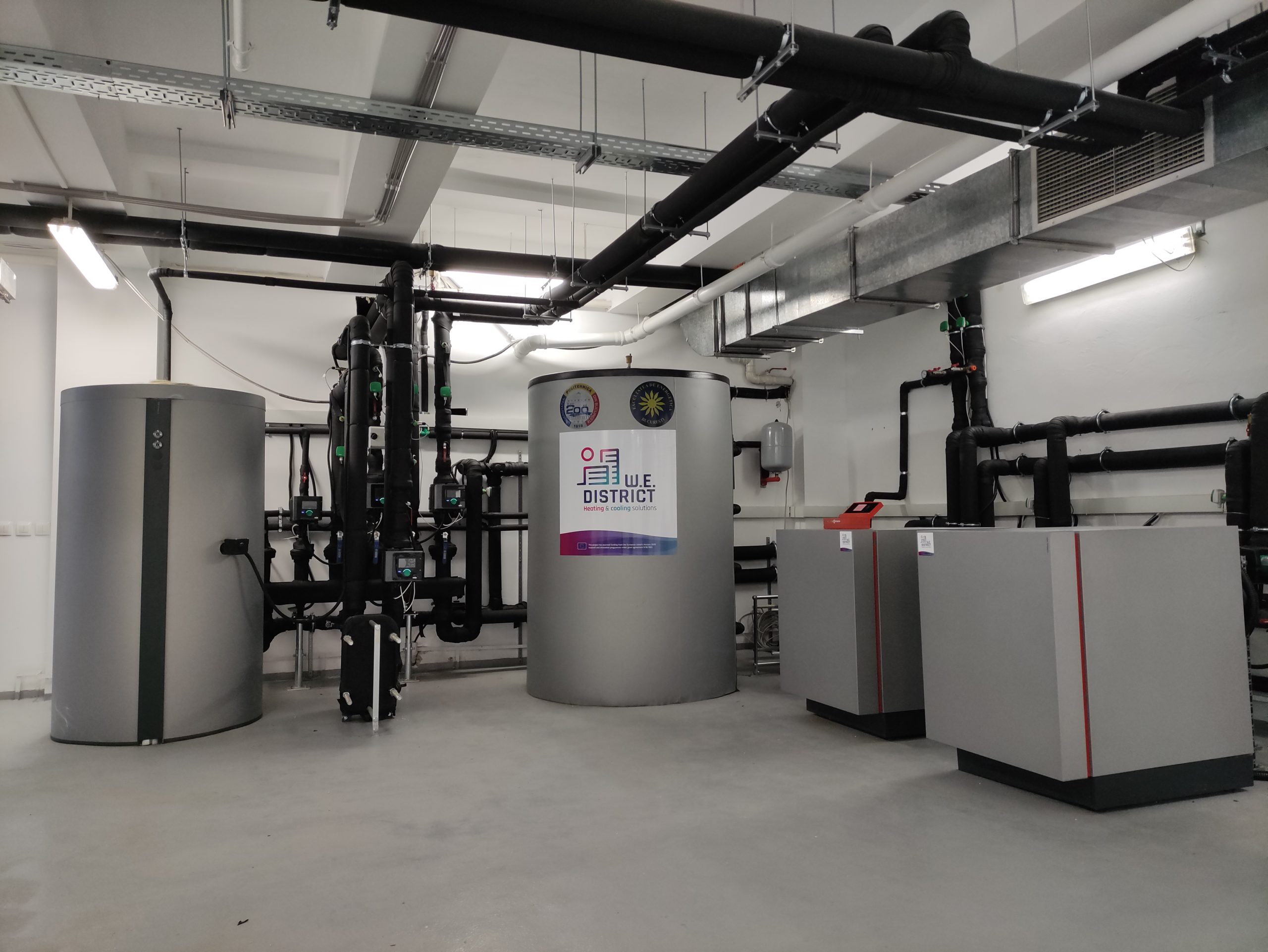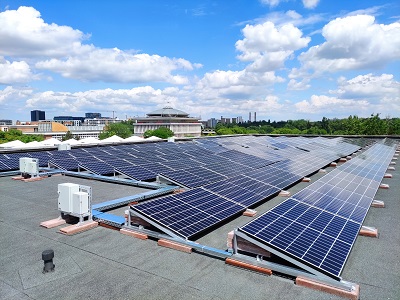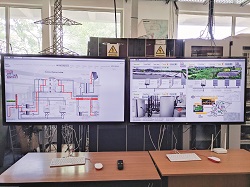Bucharest
Retrofitting of an Inefficient District Heating Section
Climate zone:
Central European Weather
University POLITEHNICA of Bucharest (Romania) is testing the integration of renewable energy sources in its existing district heating and cooling network, which is to date operated by a gas cogeneration system.
The existing district heating network is of arborescent type with consumers at the branch ends unable to benefit from the appropriate thermal level of the heat carrier. This worsens whenever new consumers are connected to the heating network.
The target building is a research laboratory with a total surface of 400 m2. It is currently located at the end of one branch of the heating network; the heat was entirely provided by a gas-fired boiler.
WEDISTRICT proposed the integration of a hybrid system based on geothermal energy with heat pumps and solar energy. This comprised solar panels for powering the geothermal unit and solar thermal collectors for domestic hot water production during summer. The borehole heat exchanger of the heat pump can be used for cooling the building during the summer. Before, there was no cooling system installed in target building.
Please watch our full YouTube video:
Technologies at Bucharest demo site:
Geothermal heat pumps & Solar thermal panels
As a first step twelve 100m deep bore holes were drilled into the ground and then connected to the heat pumps.
Geothermal heat pumps of about 63 kW for heating and 50 kW for cooling represents the thermal energy generator of the demonstrator. The heat produced by the heat pumps is stored in the buffer tank and used depending on the needs to heat the spaces of a target building. The heat overproduced by the system and not consumed by the building is injected into the local district heating network.
Furthermore, some solar thermal panels were installed for domestic hot water production, connected to the buffer tank.



